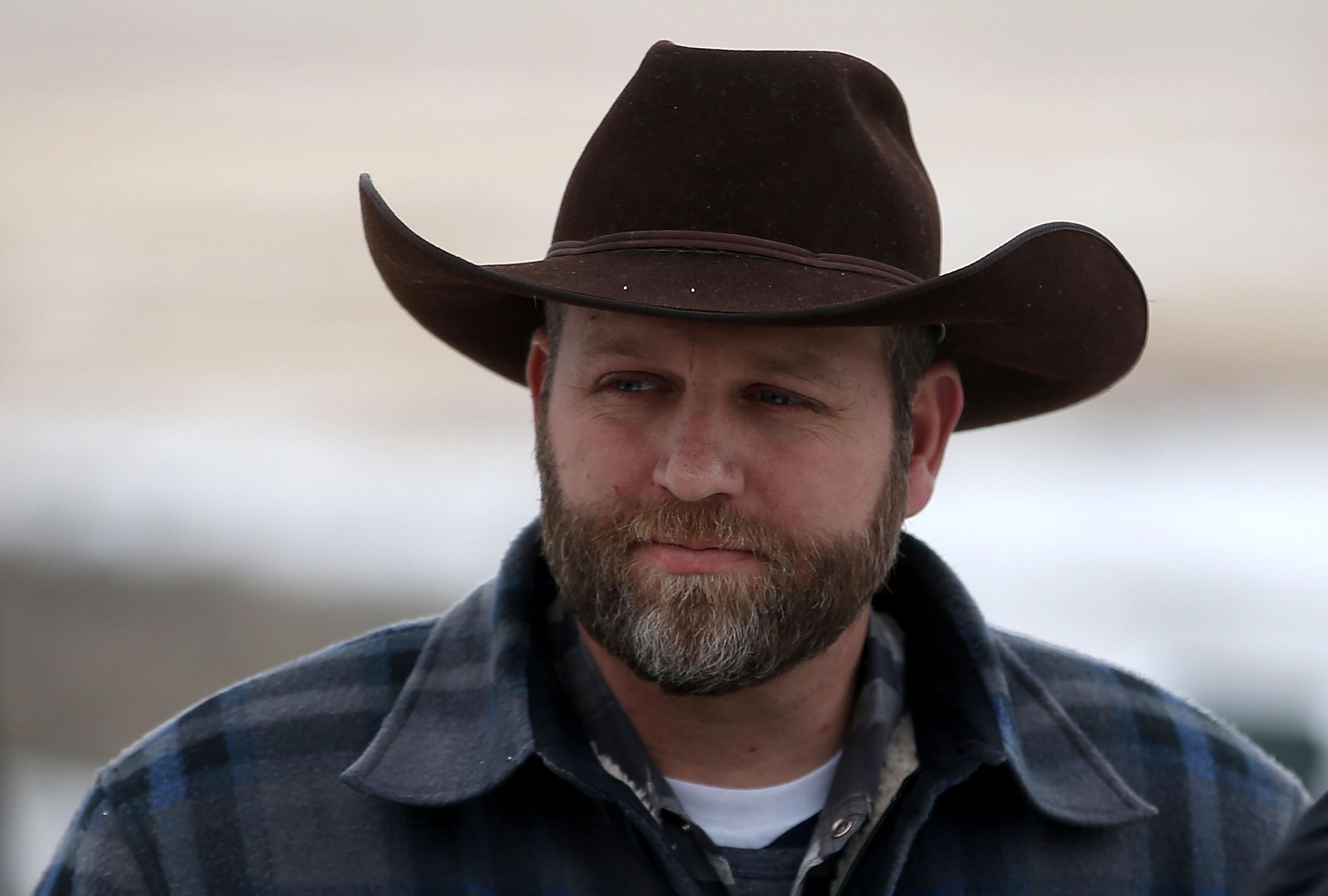When a group of armed protesters led by Ammon Bundy occupied parts of the federal Malheur Wildlife Refuge in Oregon this weekend, one of them told Oregon Public Broadcasting that he was “Captain Moroni, from Utah.”* He didn’t make that name up—in the Book of Mormon, Moroni is a military leader who takes command of an oppressed people and battles a corrupt king for their freedom. The man, who would only identify himself as Captain Moroni, believes that God is sanctioning his anti-federal actions, and must see himself in a similar position.
Bundy’s family has been invoking the Book of Mormon in their conflicts with the U.S. government for years. According to OPB, during the family’s 2014 standoff, Ammon’s father, Cliven, used banners quoting Moroni: “In memory of our God, our religion, and freedom, and our peace, our wives, and our children.” And, as OPB points out, Ammon has been using much of the same language as his father, “mixing Mormon religious symbolism with a disgust of the federal government.”
Speaking to Harney County residents last December, Ammon Bundy explained why he became involved in the Dwight and Steven Hammond case that sparked this takeover of federal property.
“I got this urge that I needed write something,” Bundy said. “I asked the good Lord … I need some help. And he gave me that help. The Lord is not pleased what has happened with the Hammonds.”
But why is Moroni the favorite of the Bundy clan? Religious historian Jana Riess calls him “the military studmuffin of the Book of Mormon.”* He is “brash and decisive … [and] gets the job done.” Riess suggests Bundy sees himself as a Moroni did, a “patriot who loves God and country and gets rid of interlopers.” But as Riess points out, Moroni actually wanted the government to do more to help people, while Bundy is invoking him to say the government is interfering too much. Indeed, the entire story of Moroni may be more complex than Bundy realizes. Riess notes that at a crucial point in the Book of Mormon, Moroni mixes up the good guys and the bad guys and threatens “a righteous representative of a decent government with the people’s best interests at heart.”
The Mormon church has distanced itself from Bundy and has been critical of his actions. On Monday, the Church of Jesus Christ of Latter-day Saints issued a statement saying that the disagreement in Oregon “is not a Church matter.”
Church leaders strongly condemn the armed seizure of the facility and are deeply troubled by the reports that those who have seized the facility suggest that they are doing so based on scriptural principles. This armed occupation can in no way be justified on a scriptural basis.
We are privileged to live in a nation where conflicts with government or private groups can—and should—be settled using peaceful means, according to the laws of the land.
Read more of Slate’s coverage of the standoff in Oregon.
Correction, Jan. 6, 2016: This post originally misspelled Jana Riess’ first name. It also misstated that Ammon Bundy identified himself as Captain Moroni. One of the other occupiers identified himself with that name.
